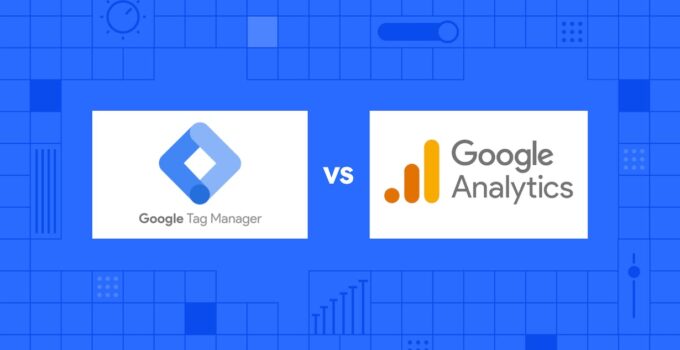In the digital age, analytics tools play a crucial role in website management, offering insights into user behavior, traffic sources, and overall performance. These tools empower businesses to make data-driven decisions, enhancing user experience and optimizing for conversions. Understanding the differences between Google Analytics and Google Tag Manager (GTM) is essential for leveraging these tools effectively.
Page Contents
What is Google Analytics?
Google Analytics is a comprehensive web analytics service that tracks and reports website traffic. It provides detailed insights into user behavior, such as how visitors arrive at a site, the pages they visit, the duration of their stay, and their interactions with content.
This tool is indispensable for understanding audience engagement, measuring the effectiveness of marketing campaigns, and tracking conversions, making it a cornerstone of digital marketing strategies.
What is Google Tag Manager (GTM)?

Source: advance-metrics.com
Google Tag Manager is a tag management system that allows you to quickly and easily update tags and code snippets on your website or mobile app. Tags, small pieces of code used for tracking and data analysis, can be managed through a user-friendly interface without altering the code on your website.
GTM simplifies the process of adding tools like G Analytics, conversion tracking, and remarketing without the need for direct code modifications, streamlining the deployment of tracking technologies. If you’re not adept in using this tech from the get-go you should consider enlisting help from a professional google tag manager consultant.
Key Differences
While Google Analytics focuses on analyzing website data, Google Tag Manager specializes in managing the tags that collect this data. Analytics provide insights into website performance and user interactions, whereas GTM acts as a middleman, facilitating the addition and updating of various tracking codes without manual coding. Essentially, GA analyzes data, and GTM manages the mechanisms of data collection.
Integration and Compatibility

Source: sitechecker.pro
Google Analytics and Google Tag Manager can be integrated seamlessly, offering a powerful combination for tracking and analyzing website performance. By using GTM to deploy data analysis tracking codes, users can take advantage of GTM’s flexibility for tag management while still gathering comprehensive data in data analysis. This integration enhances website tracking capabilities, allowing for more granular analysis and optimization.
Choosing the Right Tool for Your Needs
Deciding between Analytics and Tag Manager depends on your specific needs and goals. For in-depth website data analysis and tracking user interactions, Google Analytics is essential. If you’re looking for a way to manage multiple data analyses and marketing tags efficiently without frequent code changes, GTM is the ideal choice. Many businesses benefit from using both tools in tandem to maximize their website’s potential.
Conclusion
Understanding the distinct roles and functionalities of Google Analytics and Google Tag Manager is crucial for effective website management. Google Analytics provides the data and insights necessary for informed decision-making, while GTM offers a flexible and efficient solution for managing the tags that collect this data. Together, they form a powerful duo that can significantly enhance your website’s tracking, analysis, and overall performance, driving success in the digital landscape.





